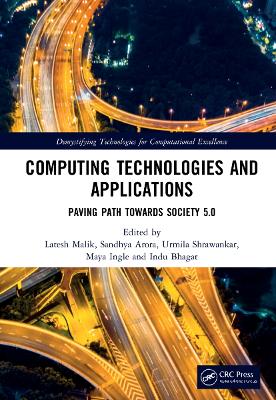Demystifying Technologies for Computational Excellence
1 total work
Computing Technologies and Applications
Making use of digital technology for social care is a major responsibility of the computing domain. Social care services require attention for ease in social systems, e-farming, and automation, etc.
Thus, the book focuses on suggesting software solutions for supporting social issues, such as health care, learning about and monitoring for disabilities, and providing technical solutions for better living. Technology is enabling people to have access to advances so that they can have better health.
To undergo the digital transformation, the current processes need to be completely re-engineered to make use of technologies like the Internet of Things (IoT), big data analytics, artificial intelligence, and others. Furthermore, it is also important to consider digital initiatives in tandem with their cloud strategy instead of treating them in isolation.
At present, the world is going through another, possibly even stronger revolution: the use of recent computing models to perform complex cognitive tasks to solve social problems in ways that were previously either highly complicated or extremely resource intensive.
This book not only focuses the computing technologies, basic theories, challenges, and implementation but also covers case studies. It focuses on core theories, architectures, and technologies necessary to develop and understand the computing models and their applications. The book also has a high potential to be used as a recommended textbook for research scholars and post-graduate programs.
- The book deals with a problem-solving approach using recent tools and technology for problems in health care, social care, etc.
- Interdisciplinary studies are emerging as both necessary and practical in universities.
- This book helps to improve computational thinking to "understand and change the world’. It will be a link between computing and a variety of other fields.
- Case studies on social aspects of modern societies and smart cities add to the contents of the book to enhance book adoption potential.
This book will be useful to undergraduates, postgraduates, researchers, and industry professionals. Every chapter covers one possible solution in detail, along with results.
